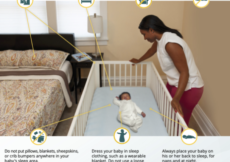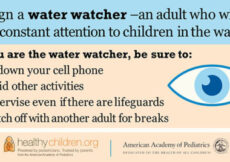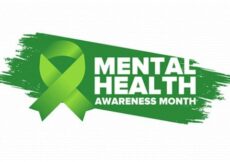January 13th, 2022
Since it was first approved for emergency use in December 2020, Pfizer’s mRNA vaccine has been available to every American 16 years of age and older to prevent severe disease and death from COVID-19. (Moderna’s mRNA vaccine and Johnson & Johnson’s single-dose jab are approved for adults 18 and older.) Authorization for use in kids 12-15 years old was granted in May 2021. And since early November, kids 5-11 can now get the vaccine to protect themselves and others from the disease.
To date, 208.2 million Americans (63% of the population) are fully vaccinated against COVID-19. About a third of those fully vaccinated individuals (77.1 million) have also received a booster dose, according to the latest CDC data. Vaccination rates vary widely from state to state, and, unfortunately, nearly all hospitalizations and deaths caused by the still-circulating Delta variant and the newly dominant Omicron variant are occurring in unvaccinated people.
Currently, a little more than 63% of children and adolescents between the ages of 12 and 17 have received one dose of the Pfizer mRNA vaccine; 53% have received both and are fully vaccinated (although they should definitely get a booster dose 5 months after the second shot to add that extra layer of neutralizing antibody protection). Since November, just over 25% of children aged 5 to 11 have received one dose of the Pfizer mRNA vaccine, according data from the American Academy of Pediatrics. Again, some states are doing better than others in protecting America’s youths from being harmed by a dangerous pandemic virus, even if much of the risk is higher in older and sick adults than in kids.
One factor that might be inhibiting parents from getting their children and teenagers vaccinated against COVID-19 is the link between the vaccine and the development of myocarditis, a rare and potentially serious inflammation of the heart muscle. It should be somewhat reassuring that vaccine-associated myocarditis — more likely after receiving Moderna’s mRNA vaccine, which is not approved for children and teenagers — is “rare, mild, and usually a guy thing.” Steve Stiles explains why the risk of vaccine-associated myocarditis is considered “negligible” in prepubertal children:
The mechanism linking the BNT162b2 (Pfizer-BioNTech) and especially mRNA-1273 (Moderna) vaccines to the occurrence of myocarditis is unclear for now, but one potential driver may be tied to a peculiarity that became apparent early: it occurs overwhelmingly in younger males, from 16 to perhaps 40 or 50 years of age. Excess risk has not been consistently seen among women, girls, and older men.
That observation has led to speculation that higher testosterone levels in adolescent boys and young men may somehow promote the adverse vaccine effect, whereas greater levels of estrogen among girls and women in the same age range may be cardioprotective.
It’s important to keep in mind that two separate studies show that the risk of developing viral myocarditis is at least four times higher from infection by SARS-CoV-2 than it is from developing myocarditis from the vaccine:
In general, “The risk of any kind of cardiac injury is vastly lower with a vaccine than it is with the actual viral infection,” [said] Leslie T. Cooper Jr, MD, a myocarditis expert and clinical trialist at the Mayo Clinic, Jacksonville, Florida[…] With the mRNA-based vaccines, “we do not have any conceivable danger signal that would outweigh the benefit of vaccination.”
To summarize:
• The risk of children and teenagers developing myocarditis after receiving the Pfizer mRNA vaccine is very low, and much lower than remaining unvaccinated and taking chances with an extremely contagious and aggressive virus.
• Children who haven’t begun puberty appear to be at very little risk of developing myocarditis after receiving the Pfizer vaccine.
• In the very rare event myocarditis does occur after the vaccine is given, parents should be reassured that its course is almost always mild and short-lived and has a positive clinical outcome.
• More than 208 million very effective doses given safely to children and adults tells us that the benefits of getting kids vaccinated to prevent the worst cases of COVID-19 far outweigh any risks from the vaccine.
• Remember that most of the people who are currently hospitalized and dying from COVID-19 are not fully vaccinated. Remember that, on average, 1,827 of our fellow Americans died every day last week. Remember that children can also get very sick from COVID-19; nearly 1,000 have died from the infection. Remember that most severe COVID-19 and poor outcomes are preventable by being vaccinated and by following simple precautions to reduce the spread of the virus.
• For children and their loved ones, there is no benefit to gain for remaining unvaccinated and risking everything.
Get the jab
Wear a mask
Do it now
That’s your task




































